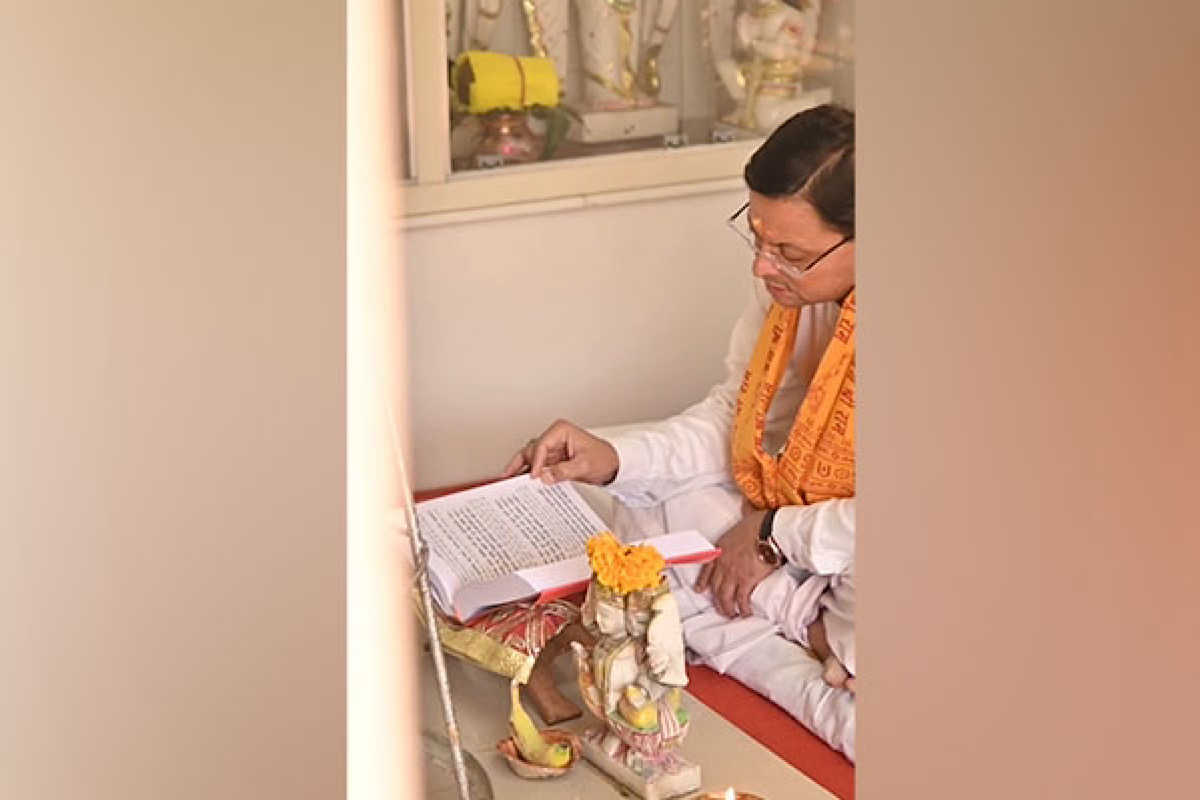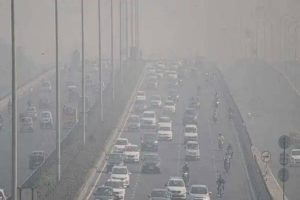With just a few hours left for the grand ‘Pran Pratishtha,’ Uttarakhand Chief Minister Pushkar Singh Dhami on Monday offered prayers at the temple located in his government residence and said that after 500 years of a long struggle, “I am extremely elated to be a witness to this grand festival.”
CM Dhami also performed ‘Gau Sewa’ after offering prayers.
“After 500 years of long struggle and sacrifices of many Ram devotees, I am extremely elated and happy to be a witness to this grand and divine festival. Ram belongs to every person and Ram is in every particle,” he said.
Advertisement
Uttarakhand Chief Minister added that he prays to Lord Ram for the prosperity of the people of the state and the welfare of all the Sanatanis living all over the world.
Goa CM Pramod Sawant also offered prayers at Rudreshwar Temple in Panaji ahead of the Pran Pratishtha.
Meanwhile, The ‘Pran Pratistha’ of Ram Lalla is scheduled for Paush Shukla Kurma Dwadashi, Vikram Samvat 2080, which falls today, January 22.
The day will start with a morning puja followed by the Pran Pratishtha of Ram Lalla in ‘Mrigashira Nakshatra’, which is expected to start around 12.30 pm and end at 1 pm.
The ceremony will witness the presence of Prime Minister Narendra Modi, Rashtriya Swayamsevak Sangh chief Mohan Bhagwat, Governor Anandiben Patel, and Chief Minister Yogi Adityanath, among other dignitaries.
Over 150 traditions and more than 50 tribal communities will converge at the Shri Ram Temple, creating a unique and diverse assembly.
This marks a historic moment with the participation of residents from mountains, forests, coastal areas, islands, and more.
The temple is constructed in the traditional Nagara style. Its length (east-west) is 380 feet; width is 250 feet and height is 161 feet; and is supported by a total of 392 pillars and 44 doors.
The pillars and walls of the temple showcase intricately sculpted depictions of Hindu deities, gods, and goddesses. In the main sanctum sanctorum on the ground floor, the childhood form of Bhagwan Shri Ram (the idol of Shri Ramlalla) has been placed.
The main entrance to the temple is situated on the eastern side, which can be approached by ascending 32 stairs through the Singh Dwar. There are a total of five Mandaps (Halls) in the Mandir – Nritya Mandap, Rang Mandap, Sabha Mandap, Prathana Mandap and Kirtan Mandap.
Near the temple is a historic well (Sita koop), dating back to the ancient era. In the southwestern part of the temple’s complex, at Kuber Tila, the ancient temple of Bhagwan Shiv has been restored, along with the installation of a statue of Jatayu.
The foundation of the temple has been constructed with a 14-meter-thick layer of roller-compacted concrete (RCC), giving it the appearance of artificial rock. No iron is used anywhere in the temple. For protection against ground moisture, a 21-foot-high plinth has been constructed using granite.
The temple complex has a sewage treatment plant, water treatment plant, water supply for fire safety and an independent power station. The temple has been constructed employing the country’s traditional and indigenous technology.











